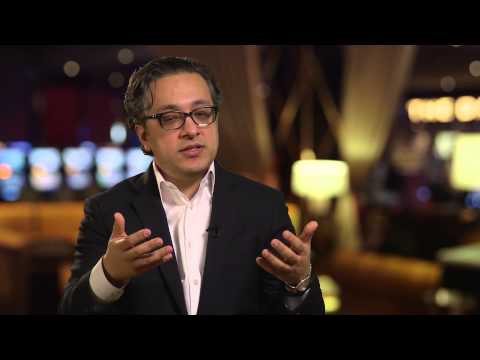High-paying CMO job: Descriptions & Salary
Chief Marketing Officer (CMO) Job Description
A Chief Marketing Officer (CMO) is a high-ranking executive responsible for developing and implementing marketing strategies to promote a company’s products or services. They oversee the entire marketing department and collaborate with other departments to drive business growth. The CMO’s job involves conducting market research, identifying target audiences, and creating marketing campaigns that align with the company’s goals and objectives. They also analyze market trends, monitor competitors, and make recommendations for improving brand positioning.
The CMO’s role requires strong leadership and communication skills, as they need to collaborate with various stakeholders, including sales teams, product managers, and creative agencies. They must have a deep understanding of consumer behavior and be able to leverage data analytics to drive marketing decisions. Additionally, CMOs must stay updated on industry trends and emerging technologies to ensure their company remains competitive.
Chief Marketing Officer (CMO) Salary
The salary of a Chief Marketing Officer (CMO) varies depending on factors such as company size, industry, and location. According to industry reports, the average annual salary for a CMO ranges from $150,000 to $300,000. However, this figure can significantly increase for CMOs working in larger organizations or highly competitive industries.
In addition to a base salary, CMOs often receive performance-based bonuses and benefits packages, which can include stock options, profit-sharing, and healthcare coverage. CMOs with a strong track record of success and extensive experience may negotiate even higher compensation packages.
Overall, the CMO role is highly demanding and crucial for a company’s success. With the right skills and experience, CMOs can expect to be well-compensated for their strategic contributions to the organization.

Chief Marketing Officer (Cmo) Job Description Template
Chief Marketing Officer (CMO) Job Description
A Chief Marketing Officer (CMO) is a high-level executive responsible for overseeing the marketing activities of a company. They play a crucial role in developing and implementing marketing strategies to promote the company’s products or services and drive business growth.
The CMO is responsible for managing the marketing team and ensuring that all marketing efforts align with the company’s overall goals and objectives. They are also responsible for conducting market research to identify target audiences, monitor industry trends, and assess competition.
One of the key responsibilities of a CMO is to develop and execute comprehensive marketing campaigns that effectively communicate the company’s value proposition to its target market. This involves utilizing various marketing channels such as digital marketing, social media, advertising, public relations, and events.
Another important aspect of the CMO role is to measure the effectiveness of marketing initiatives and analyze data to make informed decisions regarding future marketing strategies. They must be able to track key performance indicators (KPIs) such as customer acquisition, conversion rates, and return on investment (ROI).
In addition, the CMO collaborates closely with other departments such as sales, product development, and finance to ensure marketing efforts are aligned with overall business objectives. They also play a crucial role in building and maintaining relationships with key stakeholders, including customers, partners, and industry influencers.
In summary, a CMO is a strategic leader who drives the marketing activities of an organization, ensuring that the company’s brand and message are effectively communicated to the target audience. Their ability to develop and execute innovative marketing strategies is essential for the success and growth of the company.
Keywords: Chief Marketing Officer, marketing strategies, target audience, market research, marketing campaigns, digital marketing, social media, advertising, public relations, events, key performance indicators, collaboration, relationships, strategic leader.
Chief Marketing Officer (Cmo) Responsibilities
Chief Marketing Officer (Cmo) Requirements
How Much Does A Chief Marketing Officer (Cmo) Make?
Chief Marketing Officer (CMO) Salary
| Experience Level | Average Salary |
|---|---|
| Entry Level | $80,000 – $120,000 |
| Mid-Level | $120,000 – $180,000 |
| Senior Level | $180,000 – $250,000 |
| Executive Level | $250,000+ |
A Chief Marketing Officer (CMO) is a high-level executive responsible for overseeing a company’s marketing strategies and initiatives. The salary of a CMO varies based on their experience level. Entry-level CMOs can expect to earn an average salary ranging from $80,000 to $120,000 per year. Mid-level CMOs, with more experience and responsibilities, earn between $120,000 and $180,000 annually. Senior-level CMOs, who have extensive experience and manage larger teams, earn salaries ranging from $180,000 to $250,000 per year. CMOs at the executive level, who work for large corporations or hold top leadership positions, earn salaries of $250,000 or more annually. These salary ranges can vary depending on factors such as the company size, industry, and location.
Chief Marketing Officer (Cmo) Salaries by Country
Top Paying Countries for Chief Marketing Officer (Cmo)
| Country | Average Salary (USD) |
|---|---|
| United States | 200,000 |
| Switzerland | 185,000 |
| Australia | 176,000 |
| Germany | 160,000 |
| United Kingdom | 155,000 |
The table above showcases the top paying countries for Chief Marketing Officers (CMOs) based on average salaries in USD. The United States takes the lead, offering an average salary of $200,000. Switzerland comes in second with an average salary of $185,000, followed by Australia with $176,000. Germany and the United Kingdom complete the list with average salaries of $160,000 and $155,000 respectively.
A video on the topic Chief Marketing Officer (Cmo)
Video Source : McKinsey on Marketing & Sales
Interview Questions for Chief Marketing Officer (Cmo)
1. Can you explain your experience as a Chief Marketing Officer?
I have been working as a Chief Marketing Officer for the past 10 years. In this role, I have developed and executed marketing strategies for various companies, leading to significant growth in brand awareness and revenue. I have also managed cross-functional teams, collaborated with sales and product development departments, and implemented innovative marketing campaigns.
2. What are the key responsibilities of a Chief Marketing Officer?
As a Chief Marketing Officer, my main responsibilities include developing and implementing marketing strategies, managing marketing budgets, conducting market research, overseeing advertising and promotional activities, building and maintaining strong brand identity, and monitoring the effectiveness of marketing campaigns.
3. How do you stay updated with the latest marketing trends and technologies?
I believe in continuous learning and staying updated with the latest marketing trends and technologies. I regularly attend industry conferences, participate in webinars, and read marketing publications. I also encourage my team to share their knowledge and insights, and we frequently engage in brainstorming sessions to explore new marketing strategies and technologies.
4. How do you measure the success of your marketing campaigns?
To measure the success of marketing campaigns, I rely on key performance indicators (KPIs) such as brand awareness, customer engagement, lead generation, conversion rates, and return on investment (ROI). I use analytics tools to track and analyze data, and regularly assess the campaign’s performance against the set goals and targets.
5. How do you ensure alignment between marketing and sales departments?
I believe in fostering strong collaboration between marketing and sales departments. Regular communication and meetings are essential to ensure both departments are aligned in terms of goals, target audience, and messaging. I also encourage joint planning and sharing of customer insights to enhance the effectiveness of marketing and sales efforts.
6. How do you approach market segmentation and targeting?
Market segmentation and targeting are crucial for successful marketing campaigns. I start by conducting thorough market research to identify different customer segments and their specific needs and preferences. Based on this analysis, I develop targeted marketing strategies and create personalized messaging and offers to effectively reach and engage each segment.
7. Can you give an example of a successful marketing campaign you have led?
One of the most successful marketing campaigns I led was for a tech startup that aimed to increase brand awareness and acquire new customers. We developed a multi-channel digital marketing campaign that included social media advertising, content marketing, and influencer partnerships. As a result, the company saw a 50% increase in website traffic and a 30% boost in new customer acquisitions within three months.
8. How do you manage and prioritize multiple marketing projects simultaneously?
I believe in effective project management and prioritization. I use project management tools to track progress, set deadlines, and allocate resources for each project. By regularly assessing the importance and urgency of each project, I ensure that the most critical ones receive the necessary attention and resources, while also maintaining clear communication and expectations with the team.
9. How do you handle marketing budget constraints?
When faced with marketing budget constraints, I prioritize investments based on their potential impact and ROI. I analyze the effectiveness of past campaigns, identify areas for optimization, and allocate resources accordingly. I also explore cost-effective marketing channels and strategies, such as digital marketing and partnerships, to maximize the impact of the budget.
10. How do you inspire and motivate your marketing team?
I believe in creating a positive and collaborative work environment that fosters creativity and innovation. I regularly recognize and celebrate the achievements of individuals and the team as a whole. I also provide opportunities for professional growth and development, encourage open communication and feedback, and ensure that everyone understands the impact of their work on the overall success of the company.






